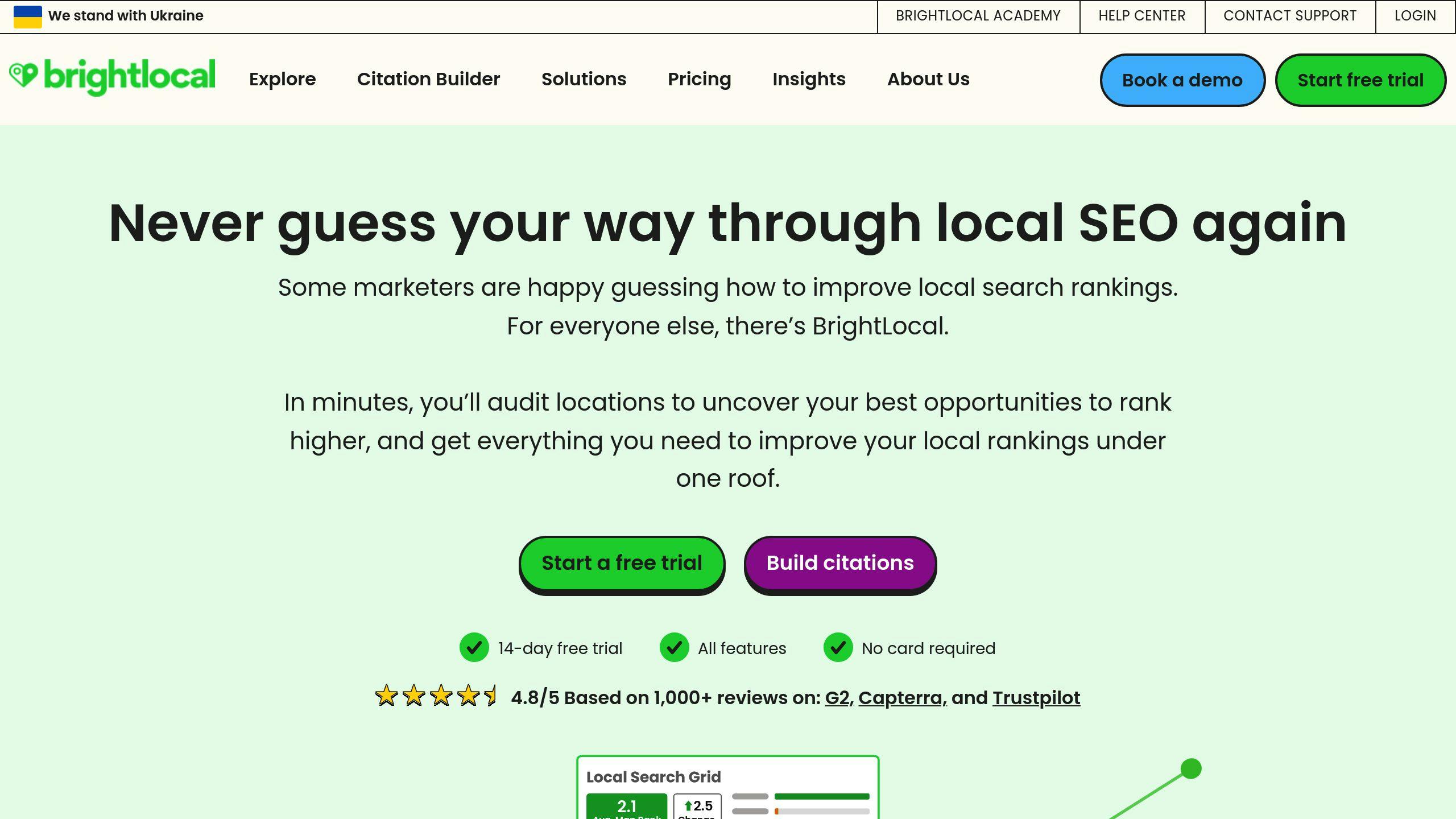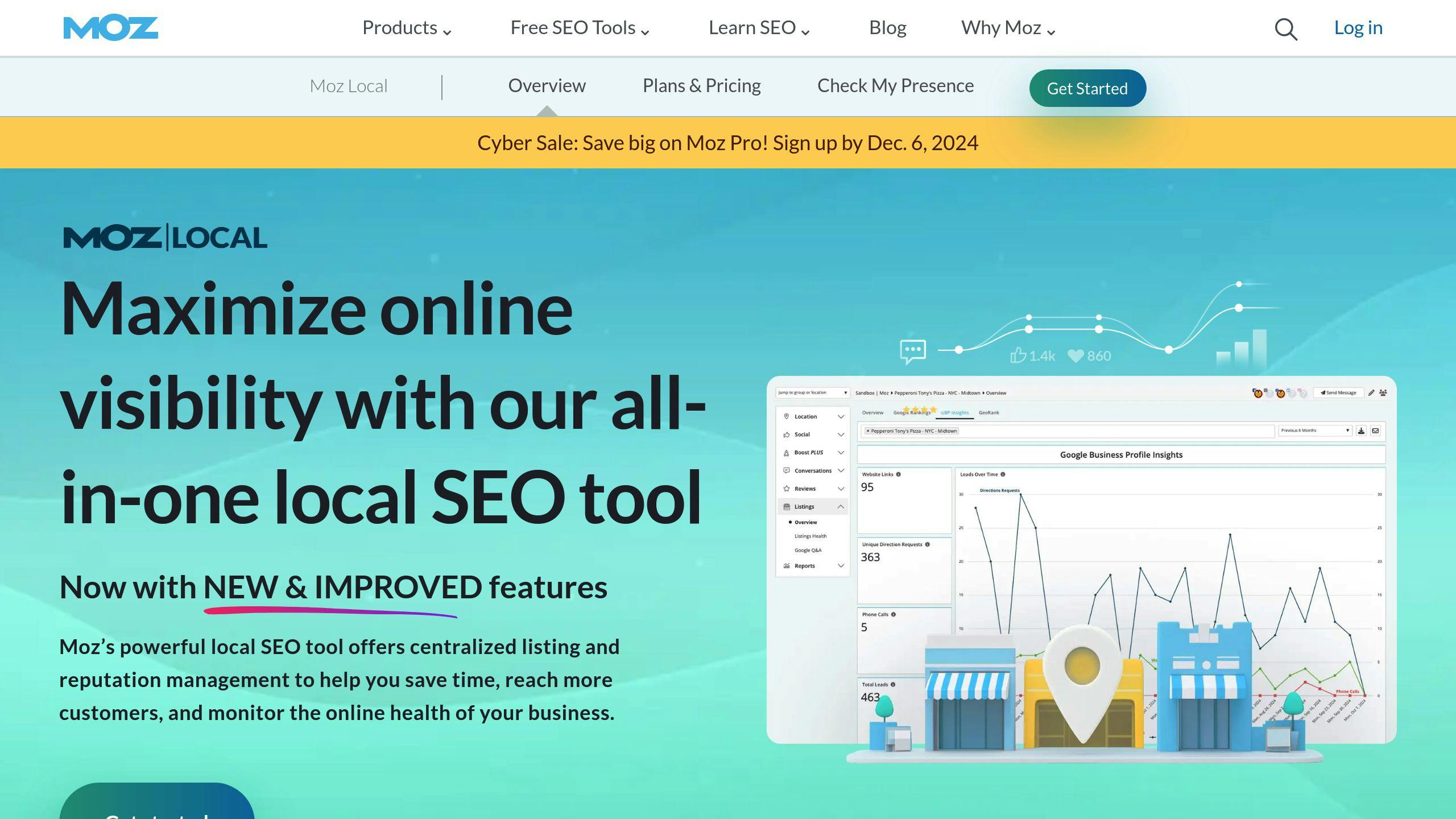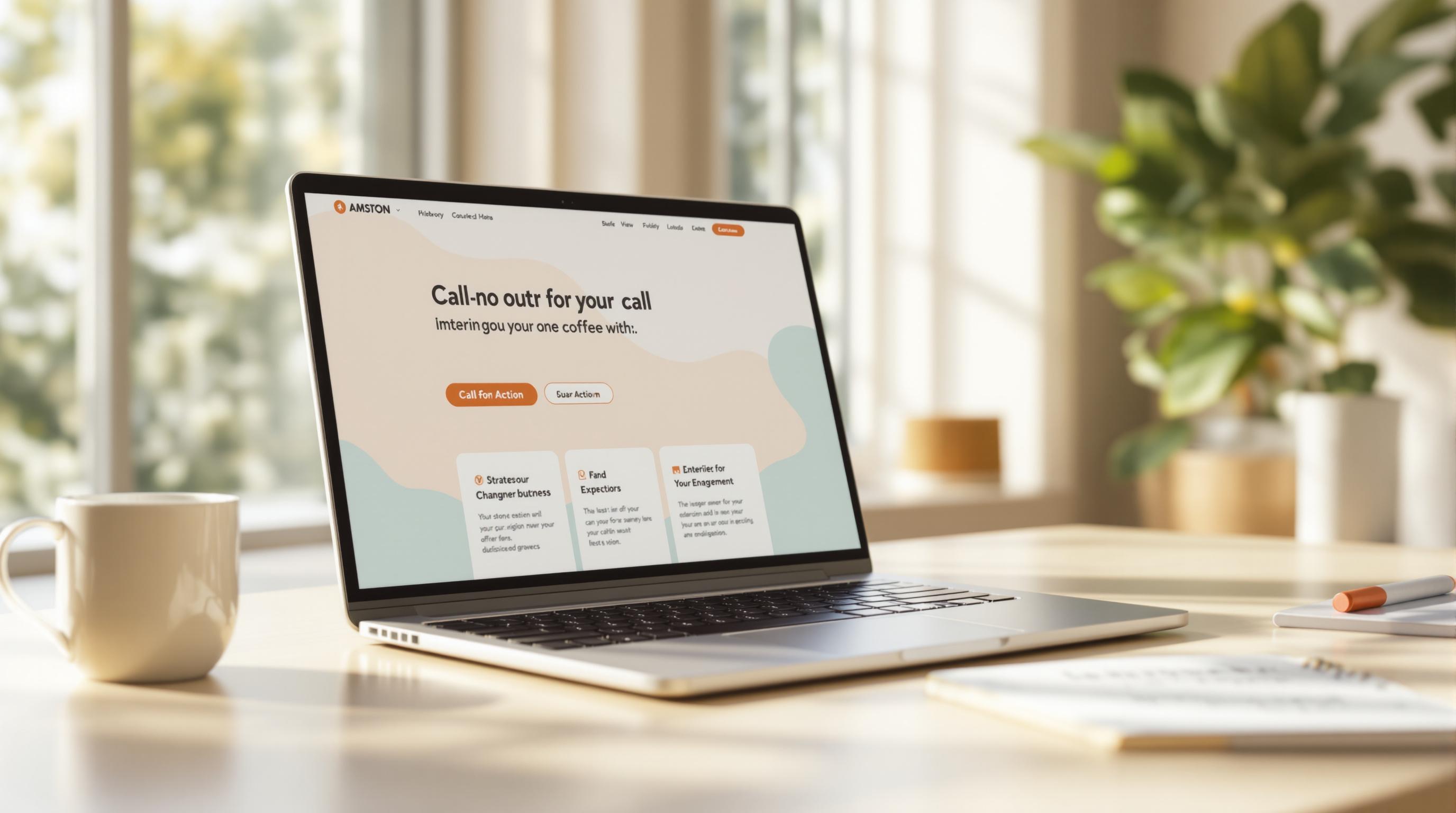Here’s a quick guide to help your Denver business stand out in local search results:
-
Optimize Your Google My Business (GMB) Profile:
- Keep business details accurate (name, address, phone).
- Use Denver-specific keywords in descriptions.
- Encourage and respond to customer reviews.
-
Focus on Local Keywords:
- Research terms like "Capitol Hill yoga studio" or "coffee near Union Station."
- Create location-specific content like neighborhood guides or service pages.
- Use long-tail keywords (e.g., "emergency plumber Highland neighborhood") for better targeting.
-
Build Local Backlinks:
- Partner with Denver businesses or events like Denver Startup Week.
- Develop link-worthy content (e.g., local guides, interviews, or case studies).
-
Use SEO Tools:
- Track performance with tools like BrightLocal and Moz Local.
- Monitor metrics like local pack rankings, review volume, and organic traffic.
Start by optimizing your GMB profile and integrating local keywords into your content. Then, build authority through backlinks and track your progress using SEO tools. These steps will help you attract more local customers and stay ahead in Denver’s competitive market.
Google My Business SEO - Expert Guide
Optimizing Your Google My Business Listing
Your Google My Business (GMB) profile acts as your business's online storefront, especially in Denver's competitive market. A well-maintained GMB profile helps ensure you're visible to local customers searching for services nearby.
Complete and Accurate Business Details
Double-check that your business name, address, phone number, and operating hours are correct and consistent across all platforms. This step is crucial for building trust and improving your visibility in local search results.
Add Local Keywords to Descriptions
Incorporate Denver-specific terms like neighborhoods, landmarks, or service areas into your business description. These localized keywords make it easier for potential customers in the Denver metro area to find you.
Manage and Encourage Customer Reviews
Set up a process to monitor and respond to reviews daily. Whether feedback is positive or negative, always reply professionally to show you value customer input.
Here’s how to encourage more reviews:
- Send follow-up messages after successful transactions.
- Train your team to mention reviews during positive customer interactions.
- Add review request links to follow-up emails.
Keep your GMB profile fresh by regularly updating it with photos, posts, and special offers. Frequent updates signal activity to Google and make your profile more engaging for potential customers.
Once your GMB profile is in top shape, you can focus on using local keywords to further boost your Denver SEO efforts.
Using Local Keywords Effectively
Using location-specific terms can bring more relevant local visitors to your site.
Research Local Keywords
Start by identifying the search terms your Denver audience commonly uses. Tools like Google Keyword Planner can help you find phrases such as 'coffee shop Capitol Hill Denver' or 'LoDo coffee shop' - these combine your business type with local details.
Here’s a quick breakdown of keyword types to target:
| Keyword Type | Example | Search Intent |
|---|---|---|
| Neighborhood-based | "Capitol Hill yoga studio" | Finding services in specific neighborhoods |
| Landmark-proximity | "coffee near Union Station" | Searching near well-known locations |
| Service-area | "Denver Tech Center dentist" | Looking for services in business districts |
Develop Location-Specific Content
Creating content tailored to Denver’s neighborhoods and culture can boost local engagement. Focus on producing:
- Neighborhood guides: Highlight local attractions or tips related to your business.
- Area-specific service pages: Detail services for specific parts of the city.
- Location-based case studies: Showcase success stories from local customers.
Make sure to include local keywords naturally, ensuring the content stays helpful and easy to read.
Target Long-Tail Keywords
Long-tail keywords are detailed phrases with lower search volume but often higher conversion rates. These terms reflect specific needs and typically face less competition. For example:
- 'emergency plumber Highland neighborhood'
- 'family photographer Cherry Creek North'
To use long-tail keywords effectively, create dedicated pages or blog posts addressing these searches in depth. This approach attracts highly-targeted traffic and builds your credibility in the local market.
Include these keywords strategically in:
- Page titles and meta descriptions
- Header tags (H1, H2, etc.)
- Image alt text
- The main content
- Internal links
Track performance using Google Analytics to identify which keywords bring the best results and adjust your strategy as needed.
Once your content is optimized with local keywords, you can focus on building authority through local backlinks.
sbb-itb-d7fe25c
Earning Local Backlinks
After optimizing your content with local keywords, the next step is to boost your authority by securing backlinks from trusted Denver-based websites.
Connect with Denver's Business Community
Collaborate with local businesses by sponsoring events, co-hosting workshops, or running joint promotions to earn backlinks and grow your local visibility. For instance, a Denver real estate agency could team up with local movers or interior designers to create a homebuyer guide. Events like the Denver Food & Wine Festival, Denver Startup Week, or gatherings in popular areas like LoDo or RiNo offer excellent opportunities for partnerships.
Showcase your involvement in these events through blog posts or press releases that emphasize your connection to the community. Genuine participation often leads to mentions on local media outlets and websites.
Create Link-Worthy Local Content
Develop Denver-focused resources that encourage other local sites to link back to you. Ideas include:
- Interviews with prominent Denver professionals
- Case studies highlighting success stories of local businesses
- Reports analyzing Denver market trends
- Guides tackling local challenges, such as zoning laws in Denver
"Building a strong network of quality backlinks is akin to earning the trust and endorsement of other reputable sites." - Creative Options Marketing [2]
Aim for quality over quantity when building backlinks. Prioritize connections with well-regarded Denver organizations and websites to enhance your credibility and improve your SEO performance.
Once you've established a solid network of local backlinks, tools like BrightLocal can help you track your progress and ensure your local search presence stays strong.
Utilizing SEO Tools
Managing local SEO for your Denver business requires the right tools to track progress and maintain consistency across various platforms. These tools offer insights that can help you stay ahead in Denver's competitive market.
BrightLocal for Local SEO Management

BrightLocal simplifies tasks like building citations, monitoring reviews, and tracking Denver-focused keyword rankings. In a city with diverse neighborhoods and intense competition, BrightLocal's features make managing localized SEO more efficient. The platform’s dashboard allows you to monitor keyword performance specific to Denver and analyze competitor activity.
Moz Local for Keeping NAP Data Accurate

Accurate NAP (Name, Address, Phone Number) information is crucial for local SEO. Moz Local helps ensure your business details are consistent across directories and integrates with Google tools to give you a clearer picture of your SEO performance.
"Mastering local SEO for your Colorado business in 2025 requires strategic focus on community engagement and local keyword optimization." - Chris Raulf, AI & SEO expert, Founder of Boulder SEO Marketing [1]
Keep an Eye on Performance Metrics
Tracking the right metrics regularly is key to understanding how well your local SEO efforts are working. Here’s a breakdown of what to monitor each month:
| Metric Category | What to Track | Why It Matters |
|---|---|---|
| Search Visibility | Local pack rankings | Reflects how visible you are in local searches |
| Customer Engagement | Review volume and ratings | Shows how customers perceive your business |
| Directory Health | NAP consistency score | Ensures your business information is accurate everywhere |
| Website Performance | Local organic traffic | Measures the success of your local search strategy |
Set aside time each month to audit your business listings and analyze your performance data. Using tools like BrightLocal and Moz Local effectively can help Denver businesses maintain a strong presence in local search results and outpace competitors.
Conclusion: Staying Competitive in Denver's Local SEO
To thrive in Denver's local SEO scene, businesses need a mix of smart digital strategies and active participation in the community. These efforts can help increase visibility and attract more local customers.
A strong Google Business Profile is a must - 93% of local searches include viewing these listings. Here are some practical strategies to focus on:
| Strategy | Impact |
|---|---|
| Local Content: Develop pages tailored to specific Denver neighborhoods | Better visibility in local searches |
| Community Engagement: Join events like Denver Startup Week and participate in local forums | Gain backlinks naturally |
| Citation Management: Keep NAP (Name, Address, Phone) details consistent across platforms | Build trust with search engines |
| Performance Tracking: Regularly analyze local SEO metrics | Fine-tune efforts based on data |
Begin with a well-optimized Google Business Profile and smart use of local keywords. Remember, local SEO is an ongoing process - it takes regular updates and engagement to stay effective.
Keep an eye on your performance and adjust as needed to stay ahead in Denver's ever-changing market. By focusing on local relevance and using the right tools, businesses in Denver can establish a strong presence and attract long-term success.


